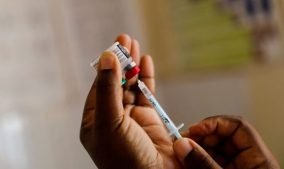Professor Fielding says the coronavirus is not the first lethal outbreak.
“Lots of research has gone into the outbreaks and we really need to look at studies done in those outbreaks and apply what we have learnt there in this. This virus behaves differently and it’s a good starting point for using data from those outbreaks. I’m very hopeful that these types of treatment will be validated in larger study groups and that they will become more widely available.”
Professor of Infectious Diseases at UCT, Marc Mendelson, has on the other hand cautioned that the trial’s benefits do not apply to those who have mild symptoms of COVID-19 but helps with severe cases only.
Great news
Meanwhile, the World Health Organisation (WHO) has hailed the initial clinical trial results as great news. The UN health agency’s Director-General Dr Tedros Adhanom Ghebreyesus has congratulated the UK government, the University of Oxford, and the many hospitals and patients in the UK who have contributed to “this life saving scientific breakthrough.”
He says the WHO will co-ordinate a meta-analysis to increase understanding of this intervention. Ghebreyesus says the WHO clinical guidance will be updated to reflect how and when the drug should be used in COVID-19.
The researchers have shared initial insights about the results of the trial with the organisation and say they are looking forward to the full data analysis in the coming days.
“It is widely used and has been with us for quite a long time. It is trusted and it is used to help to reduce inflamation. It is used in asthma, diabetes and all sorts of conditions where there’s an inflamatory process going on that you need to calm that down,” says retired South African epidemiologist Jo Barnes, while explaining what the drug was used for before the pandemic.






